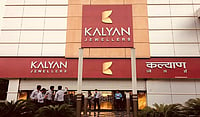New Delhi, 13: Attributing the rise in inflation to supply-side frictions, Chief Economic Adviser K V Subramanian has exuded confidence that retail inflation will come down in the days ahead with the easing of lockdowns.
According to the government data, retail inflation rose to 6.93 per cent in July, mainly driven by rising prices of food items like vegetables, pulses, meat, and fish.
However, wholesale price-based inflation declined 0.58 per cent in July, even as food items turned costlier.
"If you look at inflation it's primarily because of those supply-side frictions, but as local lockdowns are actually being reduced, these frictions should basically go down," he told PTI.
"Overall, the difference between wholesale and retail inflation is primarily due to supply-side factors which should decrease and therefore going forward even the retail inflation should ease," Subramanian said.
There are fears that retail inflation would remain at an elevated level during the rest of the year limiting the scope for the RBI to further ease the benchmark interest rate.
The six-member Monetary Policy Committee (MPC) headed by the RBI Governor has been given the mandate to maintain annual retail inflation at 4 per cent until March 31, 2021, with an upper tolerance of 6 per cent and a lower tolerance of 2 per cent.
Retail inflation so far has been in the tolerance range of MPC except for a breach in July. In June, retail inflation was 6.09 per cent.
At the same time, WPI inflation in June was at (-) 1.81 per cent, while for the month of May and April it was (-) 3.37 per cent and (-) 1.57 per cent respectively.
As far as growth is concerned, India's economy suffered its worst slump on record in April-June, with the Gross Domestic Product (GDP) contracting by 23.9 per cent as the coronavirus-related lockdowns weighed on the already-declining consumer demand and investment.
During the April-June quarter, agriculture was the lone bright spot, growing by 3.4 per cent. Financial services, the biggest component of India's dominant services sector shrank 5.3 per cent, while trade, hotels, transport and communication declined 47 per cent.
Manufacturing shrank 39.3 per cent, construction contracted 50.3 per cent, mining output fell 23.3 per cent, and the electricity and gas segment dropped 7 per cent.
The latest print of factory output is also not encouraging as the Index of Industrial Production (IIP) contracted by 10.4 per cent in July mainly due to lower output of manufacturing, mining and power generation. This is the fifth consecutive monthly decline.































